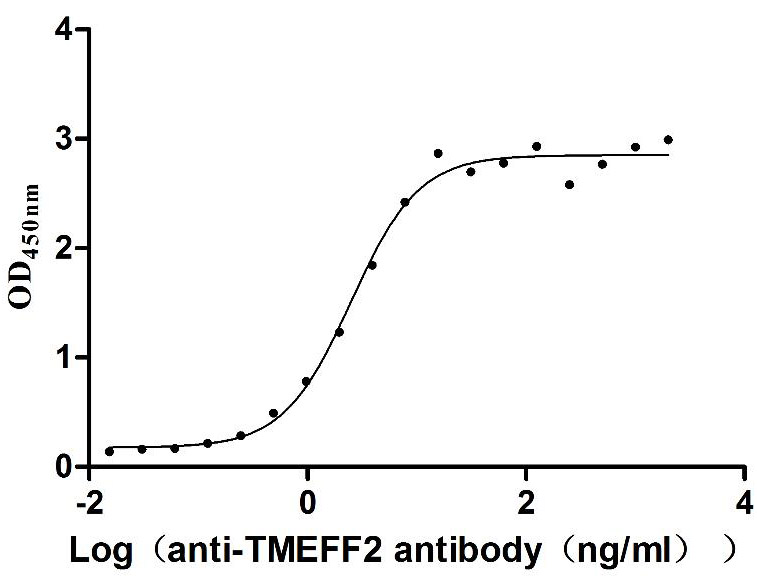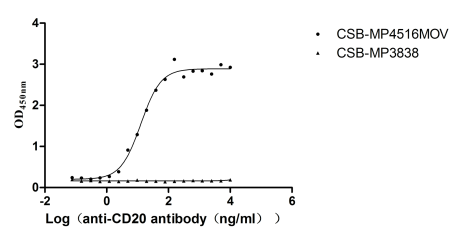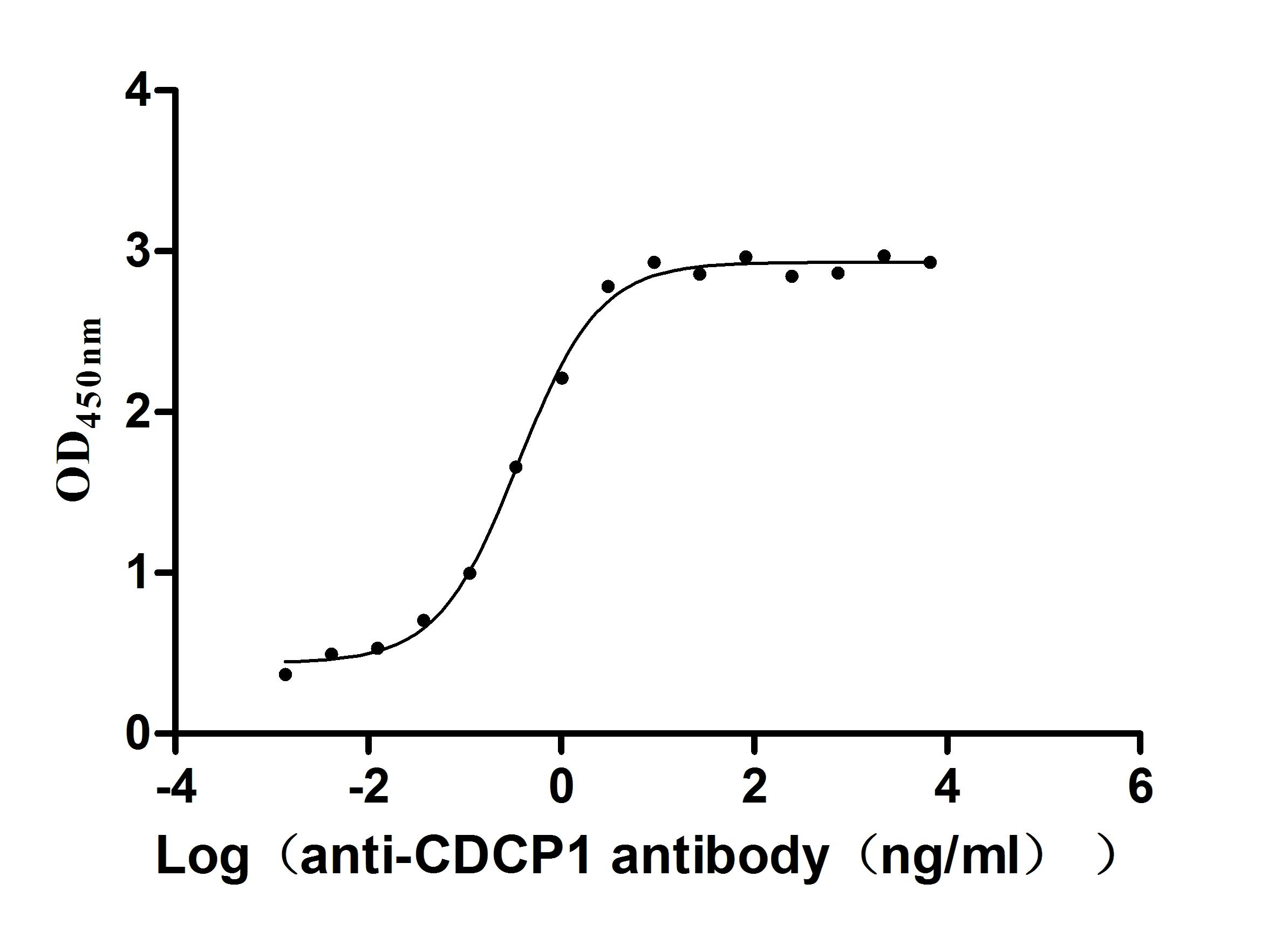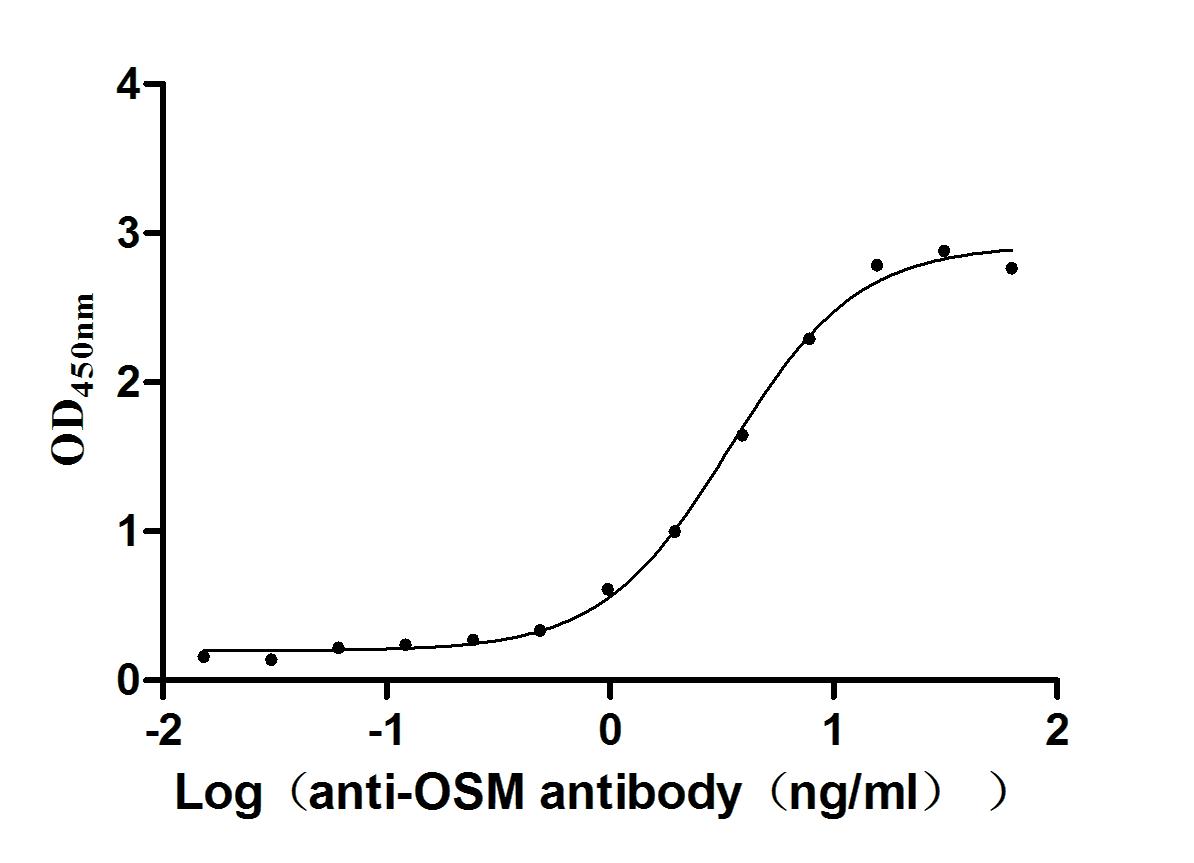Recombinant Mouse Synaptosomal-associated protein 25 (Snap25)
-
货号:CSB-YP021873MO
-
规格:
-
来源:Yeast
-
其他:
-
货号:CSB-EP021873MO
-
规格:
-
来源:E.coli
-
其他:
-
货号:CSB-EP021873MO-B
-
规格:
-
来源:E.coli
-
共轭:Avi-tag Biotinylated
E. coli biotin ligase (BirA) is highly specific in covalently attaching biotin to the 15 amino acid AviTag peptide. This recombinant protein was biotinylated in vivo by AviTag-BirA technology, which method is BriA catalyzes amide linkage between the biotin and the specific lysine of the AviTag.
-
其他:
-
货号:CSB-BP021873MO
-
规格:
-
来源:Baculovirus
-
其他:
-
货号:CSB-MP021873MO
-
规格:
-
来源:Mammalian cell
-
其他:
产品详情
-
纯度:>85% (SDS-PAGE)
-
基因名:
-
Uniprot No.:
-
别名:Snap25; SnapSynaptosomal-associated protein 25; SNAP-25; Super protein; SUP; Synaptosomal-associated 25 kDa protein
-
种属:Mus musculus (Mouse)
-
蛋白长度:Full length protein
-
表达区域:1-206
-
氨基酸序列MAEDADMRNE LEEMQRRADQ LADESLESTR RMLQLVEESK DAGIRTLVML DEQGEQLERI EEGMDQINKD MKEAEKNLTD LGKFCGLCVC PCNKLKSSDA YKKAWGNNQD GVVASQPARV VDEREQMAIS GGFIRRVTND ARENEMDENL EQVSGIIGNL RHMALDMGNE IDTQNRQIDR IMEKADSNKT RIDEANQRAT KMLGSG
-
蛋白标签:Tag type will be determined during the manufacturing process.
The tag type will be determined during production process. If you have specified tag type, please tell us and we will develop the specified tag preferentially. -
产品提供形式:Lyophilized powder
Note: We will preferentially ship the format that we have in stock, however, if you have any special requirement for the format, please remark your requirement when placing the order, we will prepare according to your demand. -
复溶:We recommend that this vial be briefly centrifuged prior to opening to bring the contents to the bottom. Please reconstitute protein in deionized sterile water to a concentration of 0.1-1.0 mg/mL.We recommend to add 5-50% of glycerol (final concentration) and aliquot for long-term storage at -20℃/-80℃. Our default final concentration of glycerol is 50%. Customers could use it as reference.
-
储存条件:Store at -20°C/-80°C upon receipt, aliquoting is necessary for mutiple use. Avoid repeated freeze-thaw cycles.
-
保质期:The shelf life is related to many factors, storage state, buffer ingredients, storage temperature and the stability of the protein itself.
Generally, the shelf life of liquid form is 6 months at -20°C/-80°C. The shelf life of lyophilized form is 12 months at -20°C/-80°C. -
货期:Delivery time may differ from different purchasing way or location, please kindly consult your local distributors for specific delivery time.Note: All of our proteins are default shipped with normal blue ice packs, if you request to ship with dry ice, please communicate with us in advance and extra fees will be charged.
-
注意事项:Repeated freezing and thawing is not recommended. Store working aliquots at 4°C for up to one week.
-
Datasheet :Please contact us to get it.
相关产品
靶点详情
-
功能:t-SNARE involved in the molecular regulation of neurotransmitter release. May play an important role in the synaptic function of specific neuronal systems. Associates with proteins involved in vesicle docking and membrane fusion. Regulates plasma membrane recycling through its interaction with CENPF. Modulates the gating characteristics of the delayed rectifier voltage-dependent potassium channel KCNB1 in pancreatic beta cells.
-
基因功能参考文献:
- We describe a high degree of structural similarity between the CpxII CTD and the SNAP25-SN1 domain (C-terminal half) and show that the CTD peptide lowers the rate of SDS-resistant SNARE complex formation in vitro. Moreover, corresponding CpxII:SNAP25 chimeras do restore complexin's function and even 'superclamp' tonic secretion. PMID: 30044227
- Our findings provide in vivo functional evidence showing a critical role of SNAP-25 dysfunction on synaptic transmission, which contributes to the developmental of schizophrenia. PMID: 29318050
- Snap-25-null mutant neurons degenerate after 4 days in vitro and contain fewer dense-core vesicles. PMID: 28404788
- a mouse mutant engineered to express normal levels of SNAP-25 but only SNAP-25a shows metabolic disease. PMID: 26195742
- The function of synaptotagmin-1 (syt-1):soluble NSF attachment protein receptor (SNARE) interactions during neurotransmission remains unclear. PMID: 27881774
- proteins, such as syntaxin-1, Munc18-1, or SNAP-25, modulate alpha-synuclein neuropathy and/or are dysregulated in Alzheimer's disease, understanding this type of neurodegeneration may provide new links between synaptic defects and neurodegeneration in humans PMID: 28348137
- Study showed that SNAP25 is synthesized in the motor nerve endings and that the level of SNAP25 mRNA affects the activity of exocytosis of the neurotransmitter PMID: 26518545
- Data demonstrate a role for SNAP-25 in controlling PSD-95 clustering and open the possibility that genetic reductions of the protein levels may contribute to the pathology through an effect on postsynaptic function and plasticity. PMID: 25678324
- Data suggest that porosome-associated proteins SNAP25, TREK-1, syntaxin-1A, and Gai3 exhibit stability and functionality such that isolated proteins can be reconstituted as insulin-secreting porosomes in cell membrane of live cells. PMID: 26523491
- Study conducted long-term continuous video-EEG recordings of Snap25S187A/S187A mice and found that all mutant mice followed essentially the same process of epileptogenesis despite some individual differences PMID: 26220374
- we demonstrate that Syb2 and SNAP25 mediate the vesicular release of BDNF in axons and dendrites of cortical neurons PMID: 25959820
- The extreme C terminus of SNAP25 is a critical region for the GBetaGamma-SNARE interaction. PMID: 26519224
- Reduction of SNAP-25 levels in adolescent mice was associated with hyperactivity, cognitive and social impairment and an abnormal EEG, characterized by the occurrence of frequent spikes. PMID: 25629685
- Data show a significant increase of vesicle-associated membrane protein 2 (VAMP-2) mRNA expression, however, the expressions of synaptosome-associated protein of 25 kDa (SNAP-25) and syntaxin 1A did not exhibit the changes in hippocampus. PMID: 24488208
- SNAP-25 phosphorylation is regulated in a stress-dependent manner through both central and peripheral mechanisms. PMID: 24374286
- Results indicate that reduction of SNAP-25 expression is associated to generation of epileptiform discharges and cognitive dysfunctions, which can be effectively treated by antiepileptic drugs PMID: 23064108
- direct interaction between TRIM9 and the Netrin-1 receptor DCC as well as a Netrin-1-sensitive interaction between TRIM9 and the SNARE component SNAP25. The interaction with SNAP25 negatively regulates SNARE-mediated exocytosis and axon PMID: 24778312
- SNAP-25 regulates the organization of the molecular apparatus needed for dendritic spine formation by recruiting and stabilizing p140Cap. PMID: 23868368
- PP2A participates in SNAP-25 dephosphorylation through calcium-dependent and calcium-independent mechanisms but is not involved in GAP-43 dephosphorylation. PMID: 23376809
- Reduced SNAP-25 alters short-term plasticity at developing glutamatergic synapses. PMID: 23732542
- Snapin, a SNAP-25 (synaptosomal-associated protein-25) interacting protein, interacts with LRRK2. PMID: 23949442
- the substitution of Ala for Ser187 in SNAP-25 induces the immaturity of the dentate granule cells phenotype. PMID: 23497716
- Data show the presence of the cleaved SNAP-25 (cl-SNAP-25) from the peripheral endings to the spinal cord, suggesting a retrograde transport of botulinum neurotoxin A (BoNT/A). PMID: 23110146
- Cpsf2,Ppil2, and SNAP-25 are the most promising targets for the NSm protein of the virus during an infection. PMID: 22838834
- Coimmunoprecipitation experiments between SNAP25 and VLGR1 show a physical interaction of these two proteins in organ of Corti and brain. PMID: 23035094
- recently ingested chemical signals in the oral cavity during weaning increase the accumulation of SNAP25 in the gustatory and somatosensory cortices and promote neural plasticity during the development of the gustatory and somatosensory nervous systems. PMID: 22641083
- Maternal lead exposure decreased the expression of SNAP-25 and negatively affected the learning and memory of the offspring. PMID: 21126476
- The results of this study suggested that increased hippocampal SNAP-25 and Munc18-1 which seemingly result from decreased serum THs might involve the age-related impairment of spatial learning and memory. PMID: 22261019
- Using unbiased, systematic proteomics to identify cysteine string protein alpha (CSPalpha) client proteins, study shows that SNAP-25 and the endocytic GTPase dynamin 1 are key clients of the Hsc70-CSPalpha chaperone complex. PMID: 22500636
- The results of this study suggested that the isoform expression and total level of SNAP-25 affect both [Ca(2+)](res) dynamics and the ability of releasable vesicles to enter into a facilitated state. PMID: 22119397
- findings suggest that the neurodegeneration in CSPalpha KO mice is primarily produced by defective SNAP-25 function, which causes neurodegeneration by impairing SNARE-complex assembly PMID: 22187053
- AC6-mediated inhibition of neurite outgrowth was reversed by the overexpression of Snap25 or a Snapin mutant that could not be phosphorylated. PMID: 21986494
- These results indicate that the three SNAP-25 family proteins display a differential distribution in the brain as well as in neuronal cells, and possibly play distinct roles. PMID: 21280044
- Data show that deletion of CSPalpha produces an abnormal SNAP-25 conformer that inhibits SNARE-complex formation, and is subject to ubiquitylation and proteasomal degradation. PMID: 21151134
- endogenous SNAP-25 regulates native voltage-gated calcium channels in glutamatergic neurons PMID: 20522554
- used cultured autaptic hippocampal neurons from Snap-25 null mice rescued with mutants challenging the C-terminal, N-terminal and middle domains of the SNARE-bundle to dissect out the involvement of these domains in neurotransmission. PMID: 20562829
- Synaptobrevin N-terminally bound to syntaxin-SNAP-25 defines the primed vesicle state in regulated exocytosis. PMID: 20142423
- Environmental and genetic factors contribute to schizophrenic endophenotypes in a Snap-25 knockout mouse model. PMID: 19729413
- SNARE protein SNAP-25 is the target of protein kinase C (PKC) phosphorylation critical to PKC-dependent incorporation of synaptic NMDA receptors. PMID: 20053906
- spinal motor neurons up-regulate SNAP-25 to preserve vital neuromuscular function PMID: 11829411
- Ca2+ modulates dynamic docking of granules to the plasma membrane and this process is due to a Ca2+-dependent interaction between SNAP-25 and synaptotagmin PMID: 12047557
- SNAP25 is negatively regulated by thyroid hormones in the mouse adrenal gland PMID: 12438134
- The removal of 9 C-terminal residues from SNAP-25 by BoNT/A leads to persistence of the inhibitory product due to the formation of a nonproductive SNARE complex(es) at release sites. PMID: 12727443
- Without SNAP-25, vesicle docking persisted, but primed vesicle pools were empty and fast calcium-triggered release abolished. Single vesicular fusion events showed normal characteristics, except for a shorter duration of the fusion pore. PMID: 12859899
- the relative expression levels of SNAP-25 and SNAP-23 might control the mode of granule release by forming docking complexes at different Ca(2+) thresholds PMID: 14742706
- We conclude that increased expression of SNAP-25 is associated with NEFA-induced impairment of insulin secretion in mouse islets. PMID: 15063781
- These observations support the hypothesis that SNAP25 is a plasma membrane factor that is responsible for sequential exocytosis. PMID: 15117968
- Potentiated thalamic low voltage-acttivated currents that precede the appearance of slow wave discharges were noted in absence epilepsy model Coloboma SNAP-25 deficient mice PMID: 15175394
- SNAP25 showed a significant decrease in mRNA expression, which likely caused the impairment in acid secretion from parietal cells in Foxl1-deficient mice. PMID: 15240114
- chronic morphine treatment inhibits phosphorylation of SNAP-25 at Ser187 and leads to a down-regulation of SNARE complex formation PMID: 15277518
显示更多
收起更多
-
亚细胞定位:Cytoplasm, perinuclear region. Cell membrane; Lipid-anchor. Cell junction, synapse, synaptosome. Photoreceptor inner segment.
-
蛋白家族:SNAP-25 family
-
组织特异性:Expressed in the outer nuclear layer of the retina (at protein level).
-
数据库链接:
KEGG: mmu:20614
STRING: 10090.ENSMUSP00000028727
UniGene: Mm.45953
Most popular with customers
-
Recombinant Human Mesothelin (MSLN), partial (Active)
Express system: Mammalian cell
Species: Homo sapiens (Human)
-
Recombinant Human Receptor tyrosine-protein kinase erbB-2 (ERBB2), partial (Active)
Express system: Mammalian cell
Species: Homo sapiens (Human)
-
Recombinant Mouse Semaphorin-4D (Sema4d), partial (Active)
Express system: Mammalian cell
Species: Mus musculus (Mouse)
-
Recombinant Human Claudin-6 (CLDN6)-VLPs, Fluorescent (Active)
Express system: Mammalian cell
Species: Homo sapiens (Human)
-
Recombinant Human Tomoregulin-2 (TMEFF2), partial (Active)
Express system: Mammalian cell
Species: Homo sapiens (Human)
-
Recombinant Macaca fascicularis Membrane spanning 4-domains A1 (MS4A1)-VLPs (Active)
Express system: Mammalian cell
Species: Macaca fascicularis (Crab-eating macaque) (Cynomolgus monkey)
-
Recombinant Human CUB domain-containing protein 1 (CDCP1), partial (Active)
Express system: Mammalian cell
Species: Homo sapiens (Human)
-
Recombinant Human Oncostatin-M (OSM), partial (Active)
Express system: Mammalian cell
Species: Homo sapiens (Human)


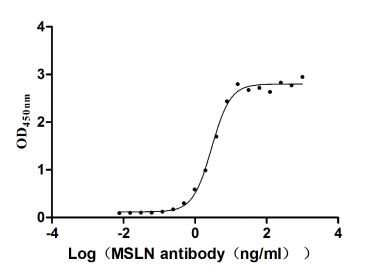
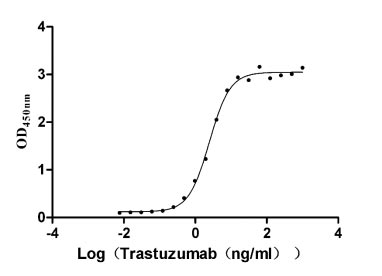
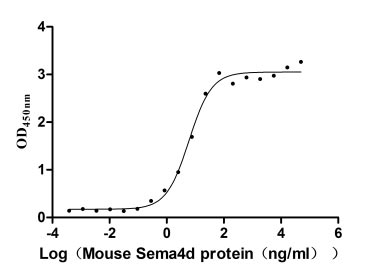
f4-AC1.jpg)
